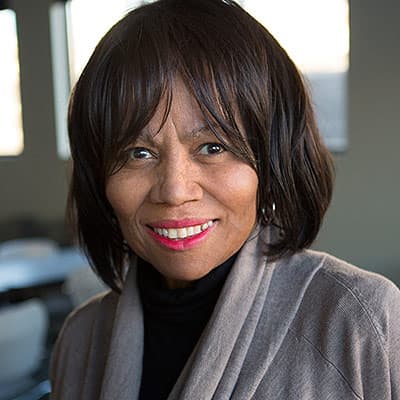Advertisement
Debate Over Gates Arrest Underscores Racial Divides
ResumePresident Obama has weighed in on the arrest of Harvard professor Henry Louis Gates Jr.
Gates, one of the nation's premier African-American studies scholars, was arrested at his home in Cambridge after police responded to a report of a break-in. The police report says Gates was uncooperative and unruly, saying he shouted at the officer, who was white, calling him a racist. That led to Gates' arrest on disorderly conduct charges.
The charges have been dropped, but the incident has sparked a debate about racial profiling and the state of race relations in America. President Obama was asked about the incident during his prime-time news conference Wednesday night.
"I don't know, not having been there and not seeing all the facts, what role race played in that," the president said. "But I think it's fair to say, No. 1: Any of us would be pretty angry; No. 2: That the Cambridge police acted stupidly in arresting somebody when there was already proof that they were in their own home; and No. 3: What I think we know separate and apart from this incident is that there is a long history in this country of African-Americans and Latinos being stopped by law enforcement disproportionately."
For one perspective from the local African-American community, we spoke with Rev. Bruce Wall, senior pastor at Global Ministries Christian Church in Dorchester.
Delores Handy: There was so much talk last fall — with the election of Barack Obama as president of the United States — of what many called the emergence of a post-racial society in the U.S. But the case with Professor Gates shows that accusations of racial profiling, if not racial profiling itself, are still happening. How far have we come?
Rev. Bruce Wall: Well, I don't think that we have come far enough whereby we can measure the impact of having a black president. We have a lot of pushback from non-blacks, who want to say that now that there is a black president we do not need affirmative action. Now that we have a black president, we do not need this, we do not need that, everything is OK in our society. And it's not true.
Professor Gates has talked about trying to turn his arrest into a teaching moment. What can be learned here and can Gates be successful with that?
Well it depends on how he handles the aftermath of being arrested. I think cooler heads need to prevail right now. The city of Cambridge, the police department, they have apologized to him. Now I think that people need to sit down and begin to think in terms of, "What are the teaching moments, and what are the things that we can learn?"
For example, one of the things that's coming out — and again, I'm in Boston, I'm not in Cambridge — but the Cambridge Police Department is predominantly white. There are fewer police officers of color who are being hired. I understand that, for Cambridge, that's Cambridge going backwards. So I think that the city officials need to look at areas where they need to grow, and begin to figure out, "What can we learn from this, and how can we communicate what we've just learned?"
What would you like to see come of this?
You know, I think your point of the teaching moment is the most critical that needs to happen. Because this has now become a national and international discussion. The officers, in my judgment, need what is called — and we have it here in Boston — sensitivity training. You know, what do you do when things are escalating? Do you just arrest?
But again, right now, cooler heads need to prevail. And we need a couple weeks for this to die down. Because right now I'm hearing discussions about, "This person's going to sue that person." I hope we do not go that way.
Is the raw reaction among members of the African-American community related to the fact that it's almost a communal experience among African Americans: Few have been able to escape being targeted, no matter how high they go?
Well, I once thought that this could never happen to me as a black pastor in this town. And when I was told that the police were going to come against my family, I was shocked. And, my wife said to me the other day in talking about this, she said, "This has to be a wake-up call." She said it really doesn't matter how high up the ladder — whether you're a pastor or a black elected official — this can and will happen to any person of color.
How do you address that though, because I can guarantee you that many white Americans don't react the same way, don't see it from that same point of view?
It doesn't happen in their communities. In the suburban communities, many of the white suburban families, when their children are drinking too much or involved in altercations, those local police officers know a lot of these families. They would not dare arrest these young people. They call the homes and say, "Come and pick up your children."Happens all the time.
But in the black community, it doesn't happen that way. So the Louis Gates situation has caused people of color to again feel more despair, that we knew it could happen to us. Now many people of color who thought that maybe a high-ranking official could not come to their doorstep, recognizes that — even with a black president — that racism, this pain, is still going in our society.
This program aired on July 23, 2009.
